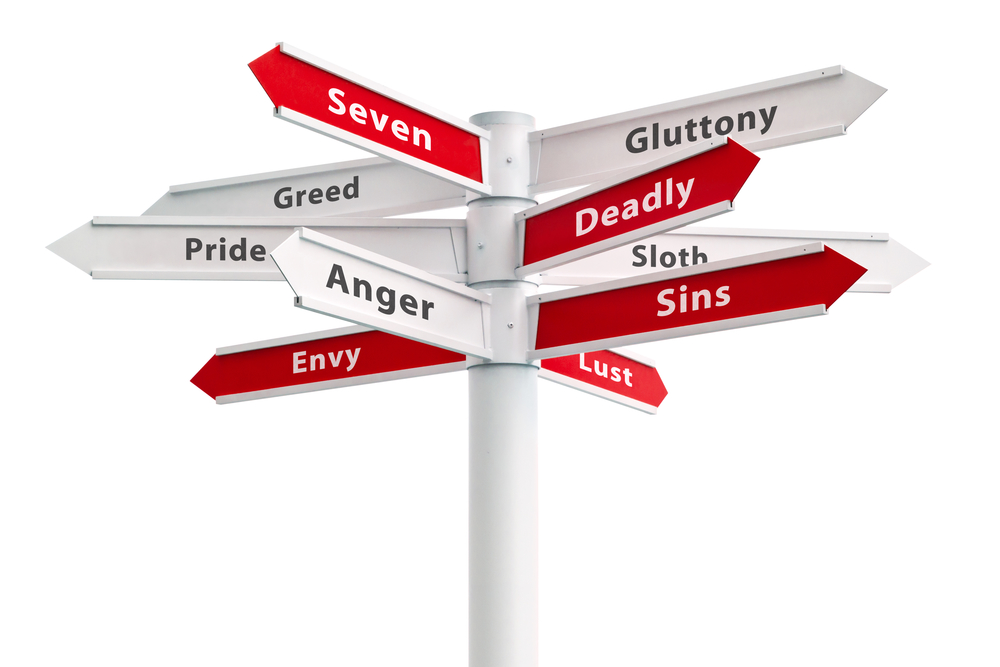The word “sin” is a very emotional term and in this case, that’s rather appropriate because the 7 sins of investment basically all relate to the concept of letting your emotions take over and being guided by negative feelings rather than clear judgement.
Here are the 7 sins of investment and what they mean
Envy
Stock charts may not look like the sort of glamorous pictures you find on Instagram but they can still have the same kind of emotional impact. Envy is basically the sin of making pointless comparisons, which are often false comparisons. Basically, investors who suffer from envy issues tend to look at headline data and the “big picture” and forget about the differences between themselves and the person of whom they are envious.
Gluttony
Gluttony is what happens when investors just want more without any heed for the consequences. Gluttons can wind up with massively unbalanced portfolios. Either they commit too heavily to what they perceive to be their favourite stocks or they have to have a bit of this and a bit of that and a bit of something else so they end up ridiculously over-diversified.
Greed
Greed is all about chasing what’s good rather than what’s healthy. Basically, it’s what happens when investors know they ought to buy Apple, as it’s clear what’s best for their portfolio, but somehow they find themselves buying Nestle instead.
Lust
Lust is what happens when investors just chase after what they see as being “hot right now” without thinking of the long-term consequences. They may wind up getting lucky, but that’s the best they can hope for and even that may not turn out to be a good result since it may prevent them from seeing the error of their ways.
Pride
Pride is what proverbially comes before a fall and that’s as true in the world of investment as it is in just about every other walk of life. Pride usually manifests itself as investors being utterly incapable of grasping the fact that somebody might actually know better than them and just ploughing on regardless, often with disastrous consequences.
Sloth
Sloth is an interesting one because in some ways it can definitely be an investment sin and in other ways, it isn’t necessarily a bad approach. Sloth can definitely turn into a sin if it means that investors wind up doing what is convenient rather than what is right. The classic example of this is the investor who admits that they should do something but says that they are “not ready” and insists that they will get to grips with whatever it is when they are ready. Them being ready often depends on some other improbable or distant event actually happening, which can lead to them putting off taking action on an indefinite basis, or at least for longer than they should. On the other hand, out of all the investment sins mentioned here, sloth is arguably the one which isn’t necessarily all that bad, especially not compared to the others. Sometimes the best course of action is to sit and do nothing and it’s probably fair to say that investors who sit on their hands a bit and move relatively slowly are probably going to find themselves better off than investors who are always in action if only because they spend less on trading costs.
Wrath
Wrath often manifests itself in what is known as “revenge trading”, which is basically trading to satisfy a feeling of anger rather than on the basis of a solid investment strategy. Rather ironically, investors who have succumbed to wrath may actually convince themselves that they are acting on the principle of “don’t get mad, get even”, but the truth is quite the opposite.








Stay In Touch